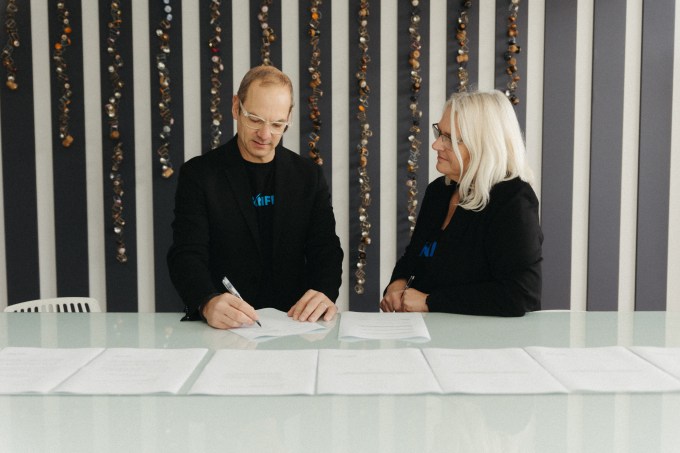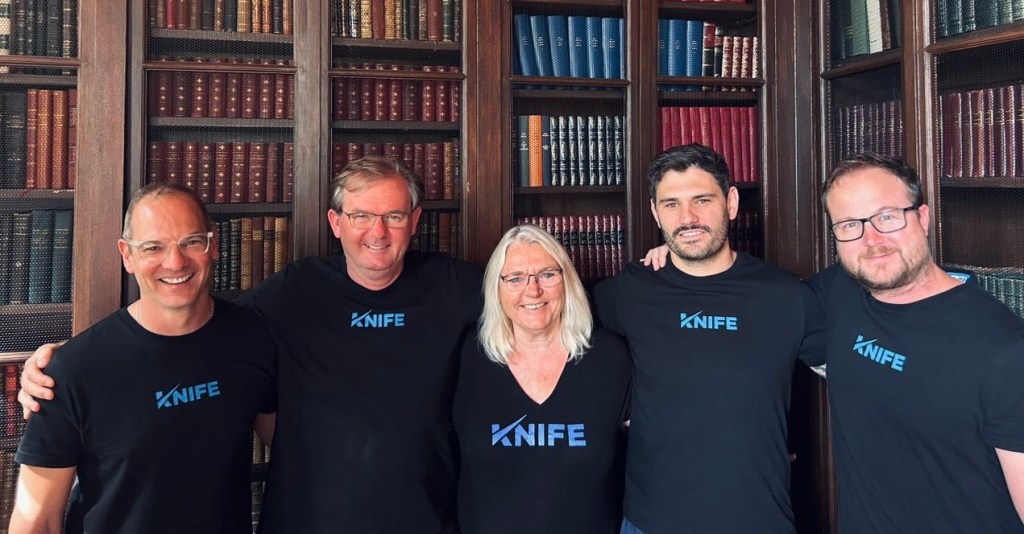South African growth-stage investor Knife Capital has reached the final close of its $50 million fund. The third fund addresses a critical funding gap in growth stages where local investors have historically fallen short.
In a February 2021 interview with managing partner Andrea Bohmert, she noted that Africa had become an incubator for international investors who write growth-stage checks but couldn’t provide necessary local support because of this gap. Furthermore, the scarcity of local VCs in the growth stage has deterred many international investors looking for co-leads from proceeding with an investment.
Knife Capital III (as it’s been dubbed) will seek to fill this void by focusing on South African entrepreneurs in the Series B stage. These startups have potential and show strong returns through exit optionality, according to the 12-year-old VC firm. It will also co-invest in businesses from other African countries with local investors.
It’s been a slow and steady progress for the storied South African firm since its launch in 2010. The first fund, Knife Capital Fund I or HBD Venture Capital, was a closed $10 million private equity fund managed by Eben van Heerden and Keet van Zyl. The firm offered seed capital to startups. The VC firm launched its 12J offering with Knife Capital Fund II in 2016. The $25 million fund (KNF Ventures), still ongoing, invests primarily in the Series A stage.
With seven exits across both funds (including significant ones such as Visa’s $110M acquisition of fintech startup Fundamo and orderTalk’s acquisition by UberEats), Knife Capital will be aiming to replicate the same for its third fund as it supports their international expansion. “What Knife Capital does is looking at the business from exit backward,” co-founder and partner Keet van Zyl told TechCrunch in a recent interview. “”While the African innovation space is growing, the main successful exit route is still a trade sale to a strategic partner. At some stage, we feel listings could become more prevalent but this is still a long way off.”
A broad range of investors committed to Knife Fund III, including the team itself, the International Finance Corporation (IFC), the Mineworkers Investment Company (MIC), the SA SME Fund as well as its new Venture Capital Fund of Funds, Standard Bank, AfricaGrow (a German Fund of Funds backed by DEG, KfW and AllianzGI), Skybound Capital, Fireball Capital and the Draper-Gain family office in partnership with Rand Merchant Bank.
The Cape Town-based VC plans to invest in 10-12 firms in this fund, with an average cheque of $3 million (the remainder saved for follow-on). So far, it has invested in DataProphet, a South African AI-as-a-service business, and Kasha, a Rwandan health access platform. In this interview, Van Zyl discusses why Knife Capital made those investments, its strategy for new investments (at least five by year’s end), and his overall perspective of the local growth-stage VC scene.
Knife Capital aimed to close this fund by the end of 2021. Was it the macroeconomic conditions that delayed the fund’s closure until now?
We did deliberately pull back on aggressively targeting funders during COVID-19, but it was also a combination of macroeconomic conditions and other factors. But also just the difficulty in getting different funders locally in South Africa and internationally into the same fund. The learnings: It’s one thing to pass due diligence but another to get several funders into the same vehicle for an African mandate.

We probably underestimated the difficulty in converging these different LPs and that it took much longer than we anticipated. But it was also needed. Some of these funders take a long time in their diligence. They also prioritize funds, but it was quite an exciting journey. But in the end, it all worked out.
But, given Knife Capital’s track record as a VC that has financed and successfully exited firms, I would have assumed that obtaining money from LPs would be a walk in the park.
The importance of exit track record and actual returns returned to funders cannot be understated. From that perspective, we would not have nearly raised this size or even closed it without that track record. After all, there aren’t many VCs with this track record and a management team that’s been together for over a decade and proven that they can have repeated successes. So, from that perspective, while having a good track record didn’t make it easy, it made it possible.
Regarding exits, is there a particular strategy Knife Capital imbibed that has led to about seven acquisitions across two funds?
So far, our playbook has been to find interesting South African technologies and help those businesses scale cross-border through the rest of Africa or into emerging markets and exit as we did with Fundamo into Visa. Or look at companies that scale into more established markets, like orderTalk into the US, which exited to Uber Eats.
That’s how we’ve modeled our playbook. We look at how an exit would look. Who would want to acquire that business? How we can help build out that partner universe. What would the metrics look like for the company before it gets acquired in terms of size, information, tech, IP, data room? It’s essential to understand all that before we invest.
Ultimately, Knife Capital aims to build a credible venture capital asset class across the continent. And the only way we, as the collective African VCs, will build a credible asset class is by catalyzing sustainable businesses and returning capital to our investors with a respectable VC-type ROI. We successfully divested its entire Fund I, where our IRR within these eight years was 59%, a rare achievement in Africa’s venture capital space.
Knife Capital primarily invests in South African companies. But in this fund, the firm invested in Kasha, which has East African roots. What’s the play here?
Yes, we are primarily South African-focused but with opportunistic co-investment with regionally or country-focused funds. Historically, our Knife Capital fund mandates were very much South African just because of the nature of the funding raised: tax breaks funds in Section 12J and Mark Shuttleworth wanting to catalyze South African entrepreneurship.
Our strength lies in knowing the South African ecosystem well and having a massive network. Most deal flow that comes through South Africa crosses our desk, and we use that competitive advantage to be the specialist in South Africa.
Kasha raises $21M Series B led by Knife Capital to expand health access platform across Africa
But over the years, the companies we’ve invested in have grown throughout the continent. Their growth across different regions has given us a more pan-African flavor even though we didn’t directly invest in scale-ups from other African countries. So, with this fund, we had a specific mandate to be more pan-African. Some funds are focused on a particular ecosystem and have preferential deal flow across Kenya, Nigeria, Egypt and other countries. We’ll be looking to collaborate and co-invest where possible, as we’ve done with Kasha and or two others, we’re looking at.
That’s why I said most of this fund will be invested in South African companies but with opportunistic investments in other countries where we can add value. That value is usually where there is a link or a benefit to South Africa because otherwise, it’s just a random investment in another ecosystem, which we can’t directly influence the path towards growth and exit.
What sectors and industries is Knife Capital particular about in this fund?
We favor B2B investments. Not to say that we don’t do B2C, but there needs to be an angle on B2B2C, at least regarding how the startup works with corporates. We feel that B2C businesses are capital-hungry and this is only a $50 million fund, so if a growth company is going to keep raising, you need to know or at least have a good feeling of where the additional capital will come from. We’re looking at capital-efficient, high-growth businesses. Specific sectors that we favor are the industries with tailwinds for Africa and also solve real challenges in edtech, healthtech, fintech, AI and agritech.
South Africa’s DataProphet closes $10M to scale its AI-as-a-service platform for manufacturers
What’s your opinion on the shortage of growth capital from local VCs in light of Naspers Foundry, for instance, taking a break?
The growth stage of funding is untapped potential. And that’s also why companies sometimes exit too early or don’t reach their full potential because they don’t believe they will be able to raise that next round of $10-20 million to play on the global stage. So, it becomes a self-fulfilling prophecy that African startups have to think a bit smaller, grow slower, be more capital efficient, and take a mediocre M&A exit because the probability of swinging through for a high-growth strategy is sometimes just not there.
A Knife Capital can only make ten or so investments at this stage, so we need more local VCs. So it’s a pity that companies like Naspers have shelved their Foundry strategy to invest more in this space. It is not my understanding that because they don’t believe in entrepreneurs on the continent, or at least, entrepreneurs in South Africa, it is more of a shrapnel from the global slowdown where Naspers itself had to make strategic choices about their core business areas and where capital needs to be focused and allocated.
Local funders need to back local fund managers for the international funders to believe. One of the complicated and challenging things we found in this fundraising is that while we could get international funders like the IFC and AfricaGrow on board, many others looked at us and said, “You don’t have enough capital backing you in your backyard. Where are the local asset managers, pension funds, and banks?” I think that’s also one of the reasons why we’re so excited about this fund is because, at least for once, we can put out names like Standard Bank and the Mineworkers Investment Company and the SA SME fund, you know, so some asset managers have backed us that are local and that I think will signal much more interest of international investors into the space.
Naspers shuts down Foundry, its $100M fund focused on South African startups































Comment